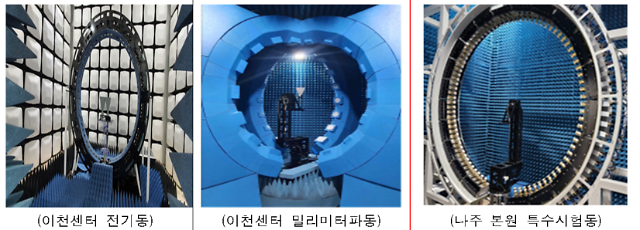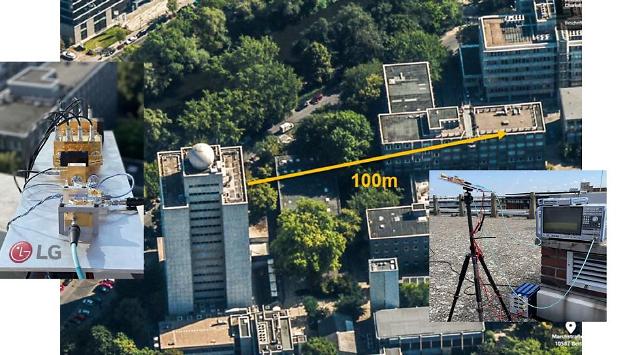
[Courtesy of the Ministry of Science and ICT]
Existing small test facilities had many difficulties in launching various new products in a timely manner, such as taking about 200 hours to measure 5G terminals. In three years of joint research with university teams, the state-run National Radio Research Agency has developed a module that integrated measuring probes with receivers.
Integrated modules were arranged in a circular structure with high density to simultaneously measure radio waves emitted from 5G terminals in all directions, thereby reducing the measurement time to around 12 minutes.
The Ministry of Science and ICT said that the high-speed measurement system would help boost the overall competitiveness of South Korea's 5G industrial ecosystem. "The development of the world's first 5G high-speed measurement system is significant progress in the field of radio measurement," 2nd Vice Minister Cho Kyeong-sik said in a statement released on March 22.
Cho's office said that the new system would help create a fast and active development environment for new technologies and products and enhance South Korea's competitiveness in 5G international testing and measurement markets.
Researchers will push for international standardization while carrying out a further study to expand the application of new technologies to the 6G terahertz (THz) wave band that includes an enormous amount of available spectrum from 100GHz to 10,000GHz. THz is a unit of frequency defined as one trillion cycles per second.
As a frontrunner in disseminating 5G mobile services, South Korea aims to achieve the world's first commercialization of 6G mobile telecommunication in 2028 through the development of THz-related source technologies. 6G has a shorter transmission distance than 5G. Base stations should be built more closely than 5G to eliminate shaded areas. Because 6G is five times faster than 5G, scientists say it will open a completely new era.
Copyright ⓒ Aju Press All rights reserved.





View more comments